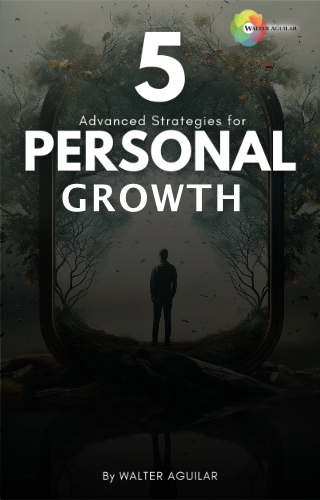“Seek first to understand, then to be understood.” — Stephen R. Covey
As the holiday season approaches, so too does the likelihood of encountering emotionally charged moments with family members, friends, or co-workers. These situations often bring about the need for difficult conversations, discussions that, while uncomfortable, are essential for fostering healthier relationships and building understanding.
For growth seekers who aim to improve their connections with others, preparing for these conversations can make all the difference. By focusing on clarity, empathy, and collaboration, you can turn potentially confrontational exchanges into opportunities for growth and understanding. Here are five essential questions to guide you as you prepare for these important conversations:
1. What is the core issue or concern?
Before initiating a difficult conversation, take the time to identify the main problem or concern. A clear understanding of the issue helps avoid miscommunication and ensures the conversation remains focused. It’s equally important to approach the other person with openness and curiosity. For example, you might ask:
- “Can you tell me exactly what is bothering or frustrating you?”
By starting with clarity, you set the stage for a productive dialogue. This question also signals that you value the other person’s perspective and are committed to addressing their concerns.
2. How do you feel about the situation, and what impact has it had on you?
Difficult conversations often involve strong emotions. Acknowledging how the situation has affected the other person creates space for empathy and understanding. Invite them to share their feelings without judgment. You could say:
- “Can you tell me exactly what is bothering or frustrating you?”
This question demonstrates emotional intelligence by validating their experience and creating a safe environment for open expression. When people feel heard, they are more likely to engage constructively.
3. What outcome or resolution would you like to see?
Understanding the other person’s desired resolution can help steer the conversation toward solutions rather than dwelling on the problem. This question encourages them to articulate what they need to feel satisfied. Try asking:
- “What do you think is the best or fairest way to handle this?”
By focusing on outcomes, you shift the conversation to a forward-looking mindset. This approach fosters collaboration and sets the groundwork for compromise or mutual agreement.
4. What role do you think I or others have played in this situation?
Accountability is a cornerstone of effective communication. By inviting the other person to reflect on shared responsibilities, you create an opportunity for mutual growth. Asking this question shows humility and a willingness to learn. For instance:
- “What could I or others have done differently to stop this or deal with it sooner?”
This inquiry encourages open dialogue and can uncover underlying issues that might have been overlooked. It also helps de-escalate tension by demonstrating your commitment to being part of the solution.
5. How can we work together to move forward positively?
Ending the conversation on a collaborative note ensures that both parties leave feeling empowered and optimistic. Focus on actionable steps that can prevent future misunderstandings and strengthen your relationship. Ask:
- “How can we improve our relationship and prevent this from happening again?”
This question reinforces the idea that resolving conflicts is a shared responsibility. It shifts the tone from confrontation to partnership, paving the way for positive change.
Why These Questions Work
These five questions are designed to foster understanding, empathy, and collaboration. They encourage introspection, provide clarity, and create a constructive framework for addressing challenges. When applied effectively, they can transform difficult conversations into meaningful opportunities for connection and growth.
A Holiday Reflection
As you navigate the holiday season, remember that the spirit of this time of year is connection and togetherness. While difficult conversations may seem daunting, they are often the bridge to deeper understanding and stronger relationships. By approaching these moments with preparation and intention, you can embrace the true essence of the season: love, understanding, and harmony.






